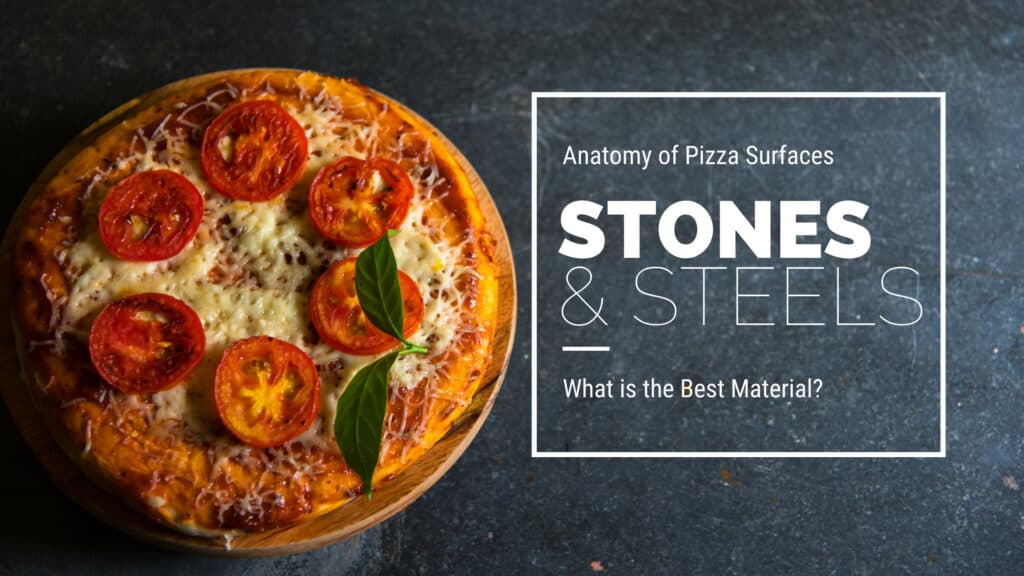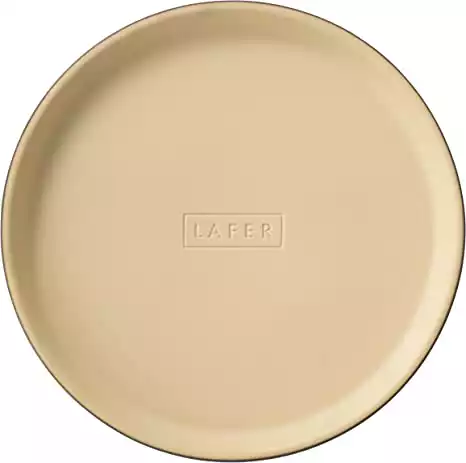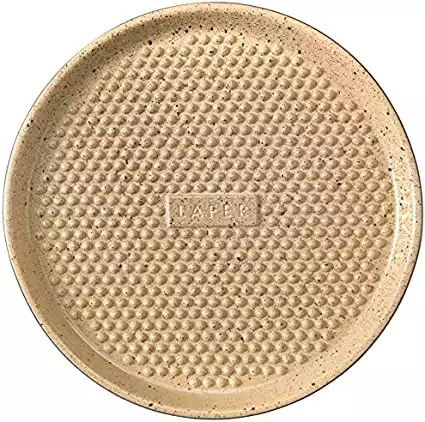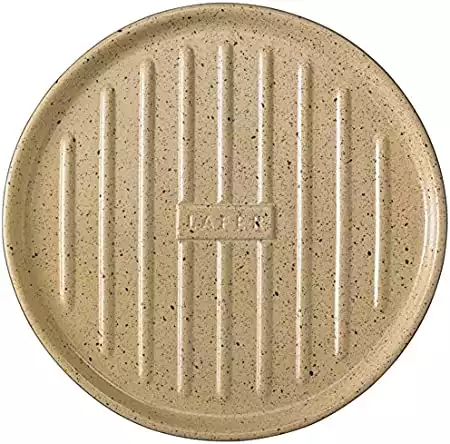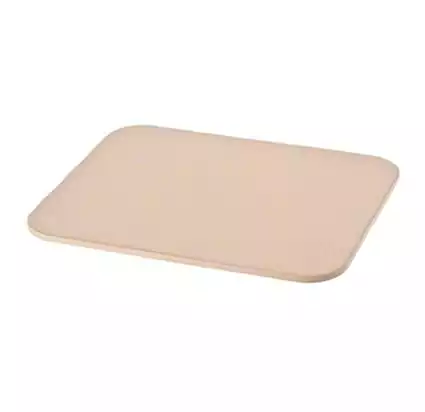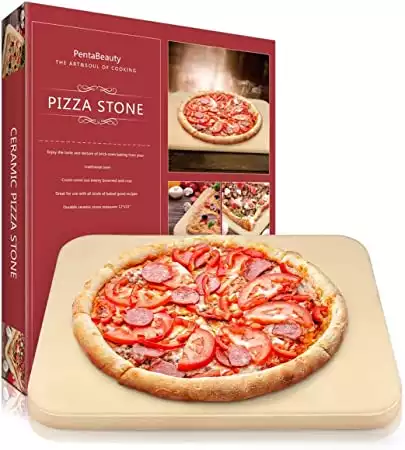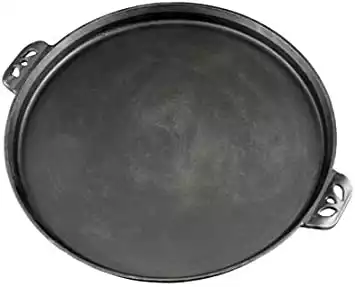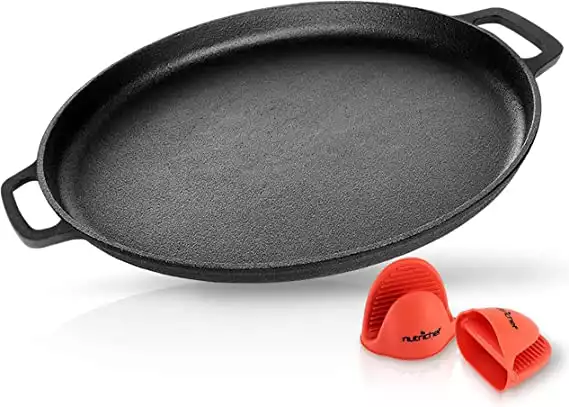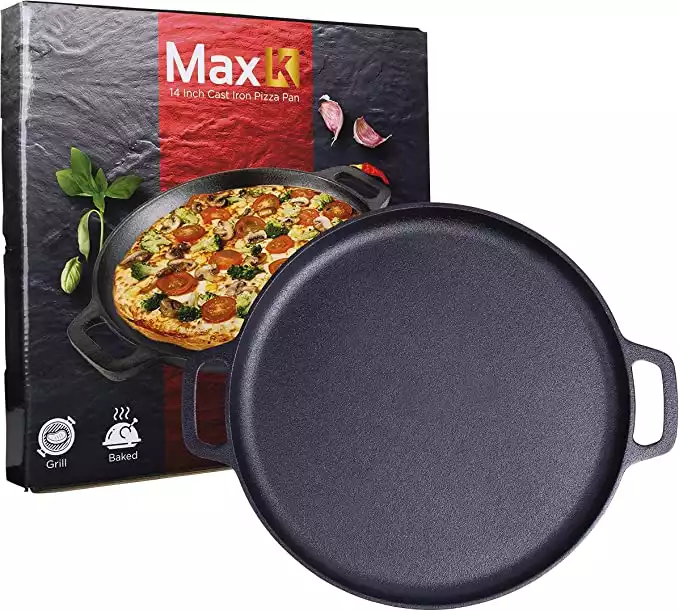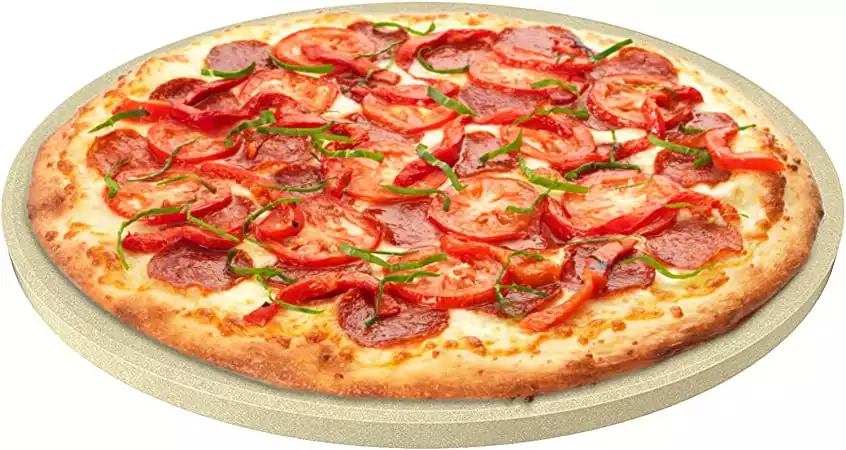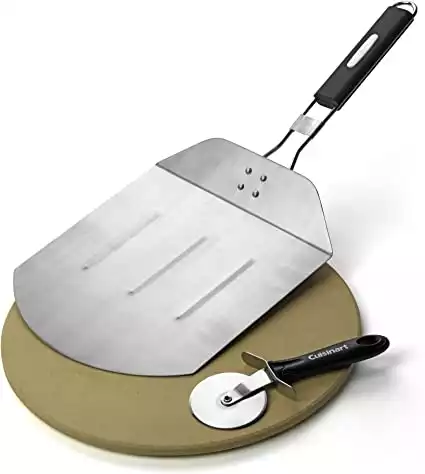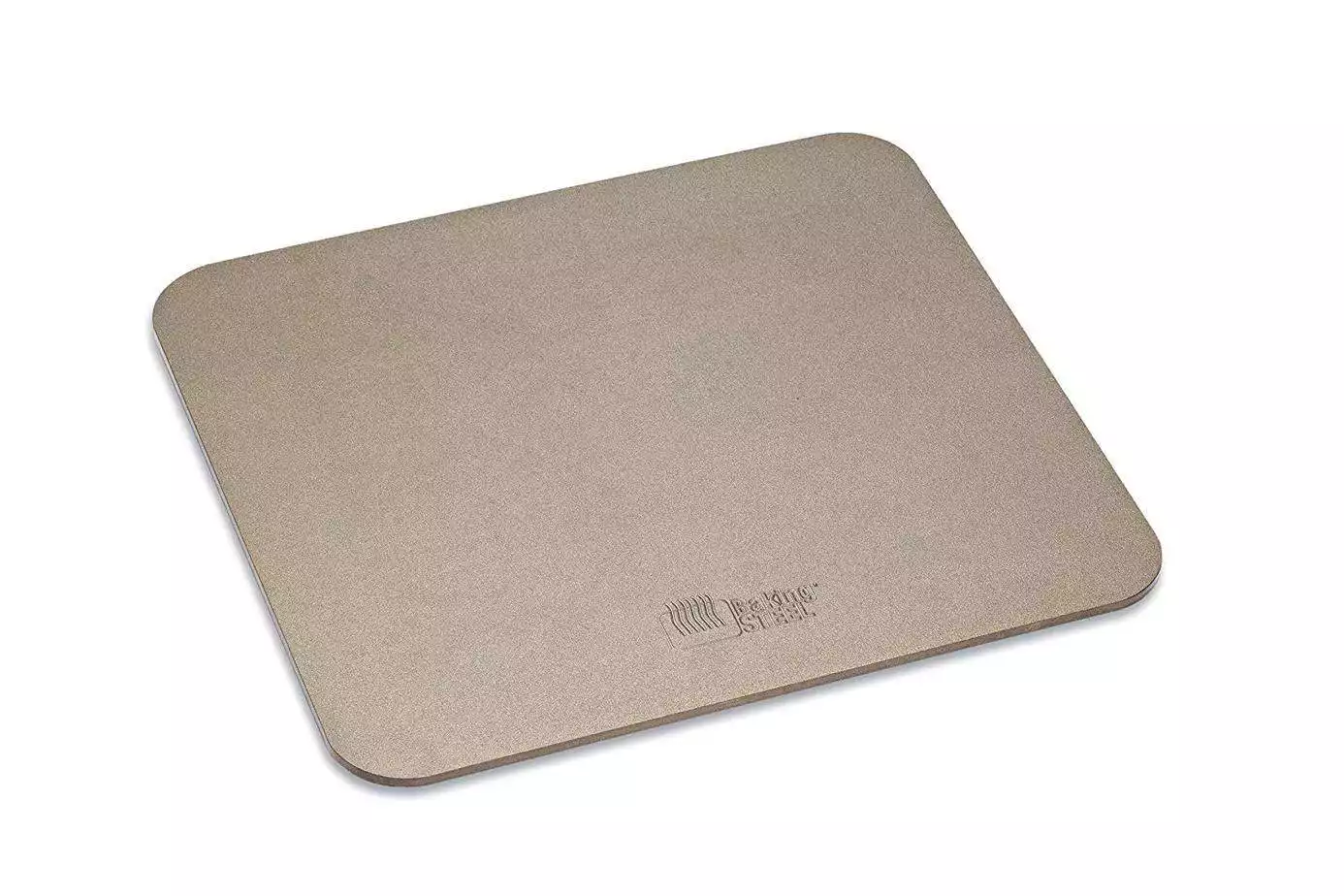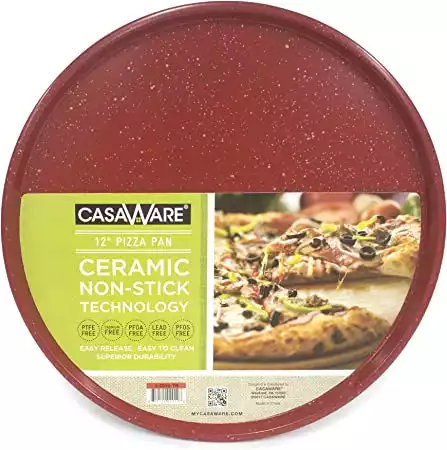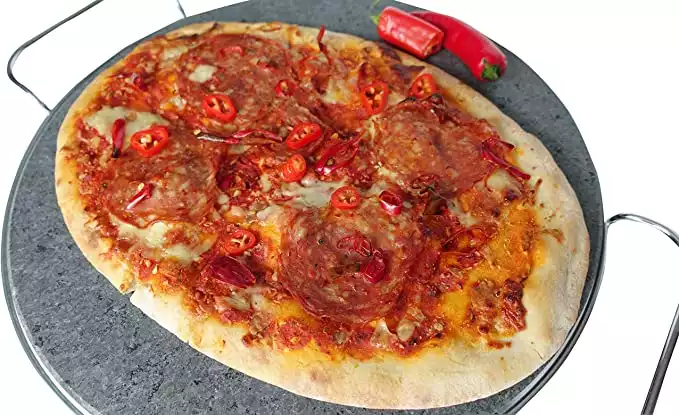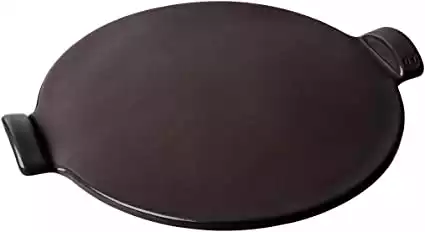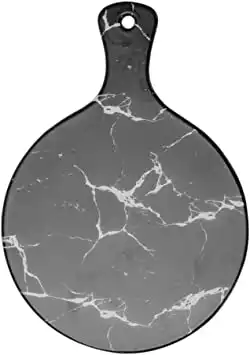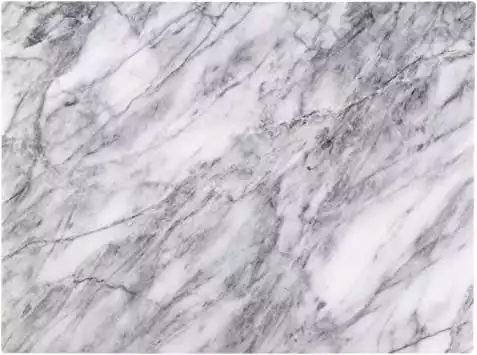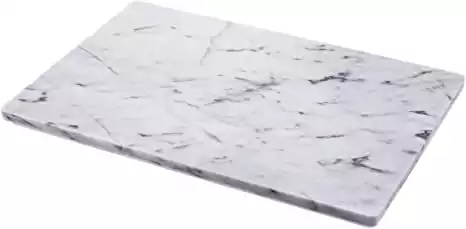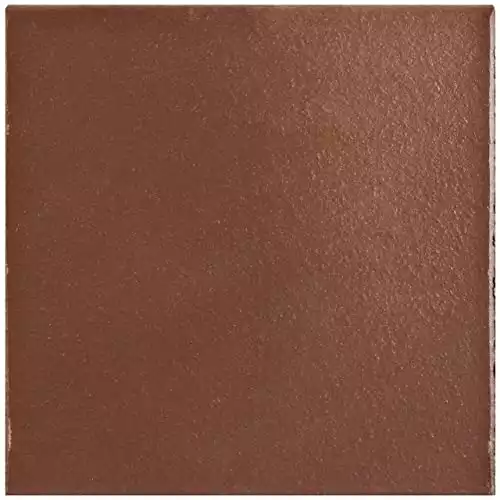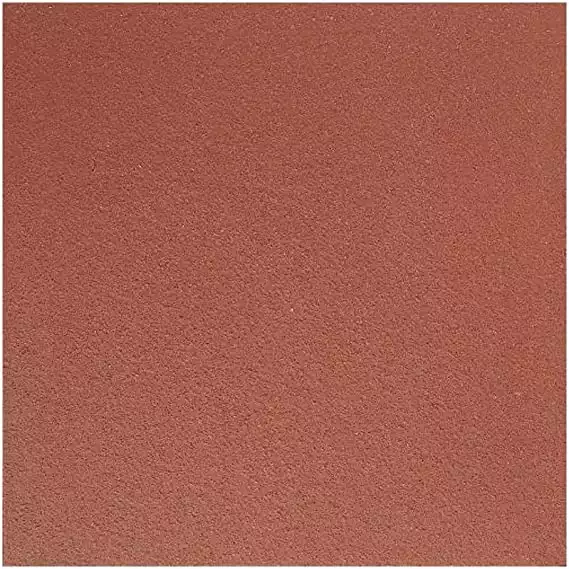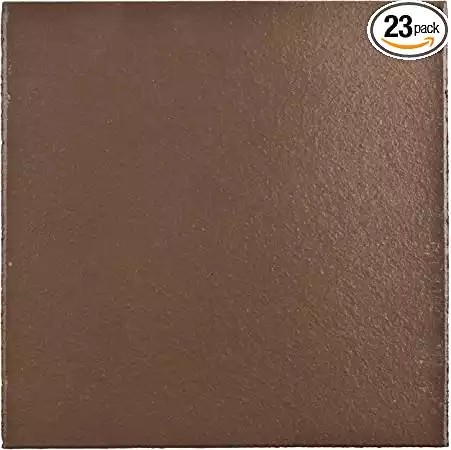Have you ever found yourself wondering, What is a pizza stone made of?
If so, you’re in the right place. Pizza stones, these seemingly simple tools, play an integral role in achieving that perfectly crisp, well-baked crust we all adore. But what exactly are these essential pizza-making tools made from, and why does it matter?
In this post, we’re diving deep into the heart of your favorite kitchen companion – the pizza stone. We’ll explore the various materials used to create these baking aids, including ceramic, cordierite, and clay, each with its unique properties and impact on your pizza’s final outcome.
Understanding what a pizza stone is made of can significantly enhance your pizza-making process, guiding you to select the perfect stone that matches your baking style and needs. So, whether you’re a seasoned pizzaiolo, a home cook looking to up your pizza game, or just a pizza lover interested in the science behind the perfect slice, this is a must-read for you!
Continue reading to uncover the secret ingredients behind the magic of pizza stones and how they contribute to transforming your homemade pizzas into pizzeria-style masterpieces.
Let’s examine it deeper.
Here’s What You Will Find:
You can slow cook, broil, bake, grill, and roast practically anything in your home oven.
But when it comes to making a pizza, home ovens do not make the cut.
Without the right baking surface that will be perfectly hot for your pizza, you can never develop the treat’s right consistency.
And this is where a pizza stone can be of help.
What Are Pizza Stones Made Of?
As with everything else, pizza stones are available in various shapes, structures, and sizes. Pizza stones are made from various materials like clay, granite, cast iron, cordierite, granite, marble, and more.
Pizza stones are typically made of ceramic, cordierite, or clay. These materials have unique characteristics that make them suitable for baking pizzas.
Ceramic
This is the most common material used for pizza stones. Ceramic has excellent heat retention properties, allowing for even cooking. It also absorbs moisture from the pizza dough, producing a crispier crust.
Cordierite
This material is more durable and resistant to thermal shock than ceramic, meaning it’s less likely to crack from rapid changes in temperature. Cordierite stones are often a bit more expensive than their ceramic counterparts, but their durability makes them popular.
Clay
Some pizza stones are made from clay, particularly fireclay, which can withstand very high temperatures. Clay stones tend to heat slowly but retain and distribute heat exceptionally well.
Regardless of the material, pizza stones mimic the conditions of a brick oven, making them an excellent tool for baking pizzas with a well-browned, crispy crust. It’s important to note that pizza stones require careful handling and specific cleaning methods to keep them in good condition.
Pro Tip
Choose a pizza stone that meets your needs, and that is multipurpose.
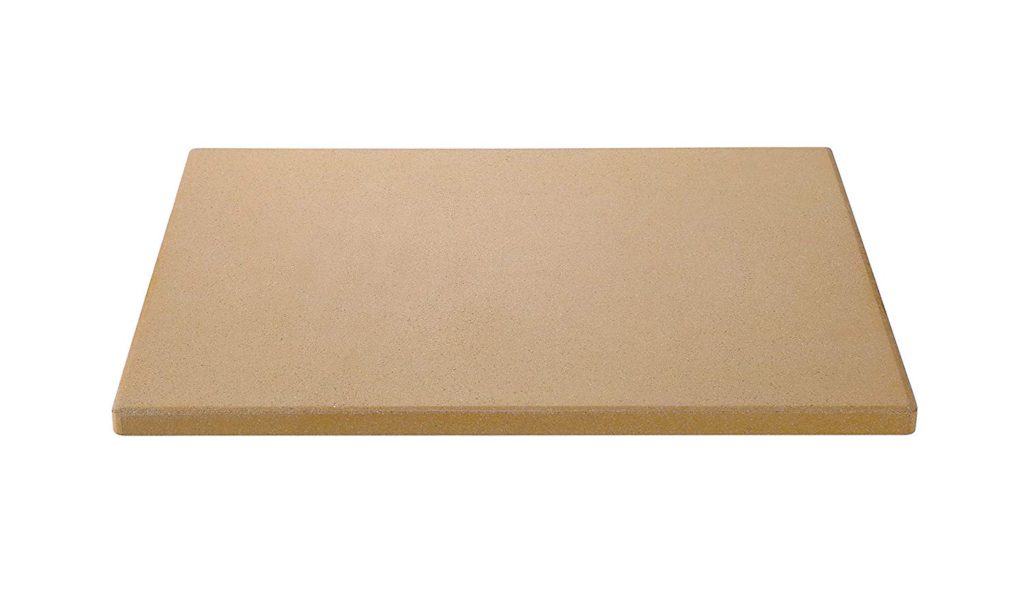
Are you wondering what are pizza stones made of? But which among these options is the best pizza stone material? And which one should you invest in?
Read on to find out more about each material with a detailed analysis of its pros and cons.
Clay Pizza Stones
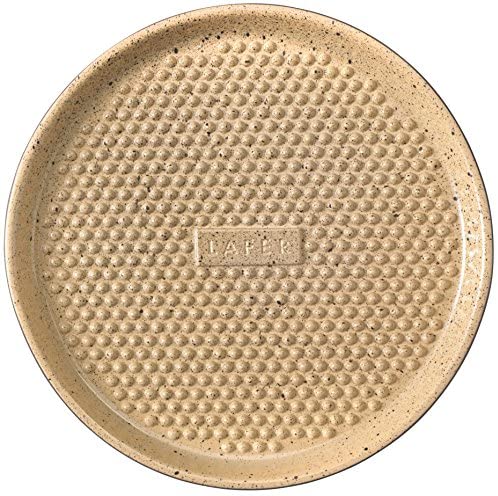
If you’re a home baker who’s looking to whip up some delicious pizzas, a clay pizza stone might be your best option.
Clay minerals are primarily made up of silica, alumina or magnesia (or both), and water, while iron substitutes for aluminum and magnesium to variable degrees, and potassium, sodium, and calcium are commonly present.
With excellent moisture-retaining properties, clay pizza stones specifically ensure that your pizzas are crunchy through and through.
You are left with a deliciously crunchy exterior paired with a soft crust.
The downsides?
It takes a little too much time for pre-heating, and in some instances, it also has durability issues. Cleaning these stones, however, is fairly simple.
Pros and Cons of Clay Pizza Stones
Pros
- Excellent moisture-retaining properties.
- Leaves you with crunchy and sog-free pizzas.
- Available at an affordable price point.
Cons
- May incur damages from the thermal shock.
- Takes time to heat up
Here are Our Recommended Clay Pizza Stones
Römertopf brings its long history of clay roasting to the open grill with Lafer’s creative culinary experience. Both römertopf and loafers believe that customers deserve harm-free cooking dishes so that they can be creative with their grilled meals while avoiding the harmful effects of using aluminum & nickel-based cookware.
Provides even heat- flames from grill can't flare and burn one side of food suddenly. Cook anything outside- meats, fish vegetables, chili, pizza, appetizers & desserts.
Provides even-Heat stop unwanted burning due to flames sparked by food juices. Cook Anything Steaks, Fish, Chicken are no problem but now try your hand at chili, small vegetables, and even desserts.
Ceramic Pizza Stones
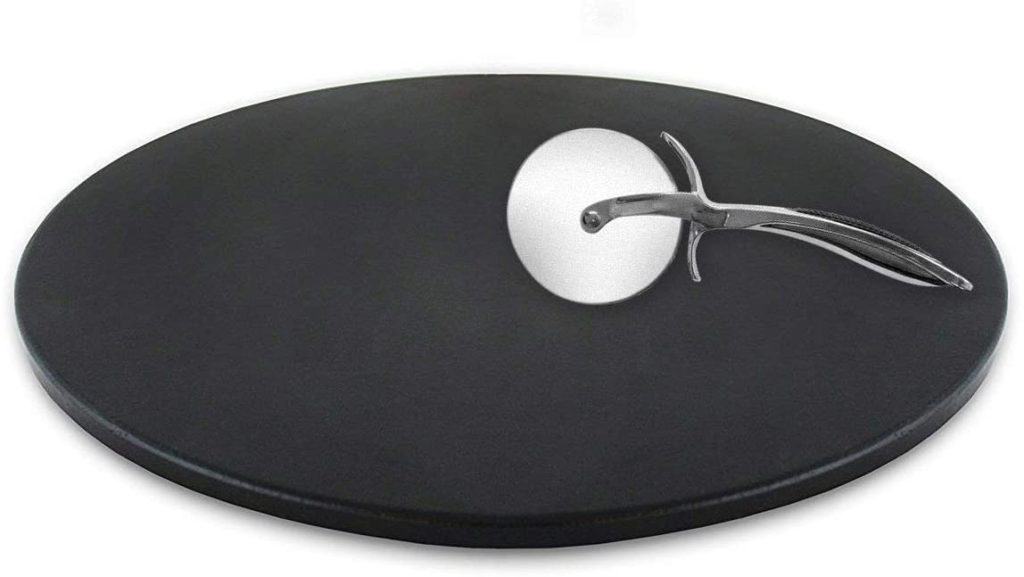
Ceramic pizza trays are created through a rigorous clay baking session. Once baked, the clay is then hardened to render a structure.
Ceramics are often manufactured by molding clay, earthy materials, powders, and water mixes into desired shapes. After the ceramic has been molded, it is burnt in a kiln, which is a high-temperature oven.
Glazes are ornamental, waterproof, paint-like substances that are applied to ceramics.
Most ceramic stones are widely used for heat retention and conduction at high temperatures. Thanks to these stones, heat is evenly radiated, leaving you with a perfectly cooked pizza.
While ceramic stones are not known to be traditionally durable, they will last a while when you properly care for them.
They may be subjected to thermal shock, and you will require extra care while cleaning and maintaining them.
As with claystone, ceramic pizza stones take ages to pre-heat and aren’t as potent to handle massive temperature changes.
But then again, these stones are cheap, and if it’s a basic stone that you require, they will turn out as just the right option.
Pros and Cons of Ceramic Pizza Stones
Pros
- Cooks fast and evenly.
- Available in a variety of styles and designs.
- Easy to use and affordable.
Cons
- Extremely high maintenance.
- Not as durable.
Here are Our Recommended Ceramic Pizza Stones
This designed perfect heat shock-resistant baking stone is made of all-natural Cordierite stone, sintered in 2100°F kiln for hours, a feature of superior strength, durability, heat retention, and excellent thermal shock resistance.
This pizza stone for oven pre-heats twice as fast as other pizza stones on the market. It thoroughly cooks homemade pizza at quicker baking times and produces a much crisper crust. The tapered edge allows for easy serving. The baking stone is coated in a non-stick glaze that prevents the crust from fusing to it and creating a mess. It does not stain from grease or burnt crust and washes easily.
Cast-Iron Pizza Stones
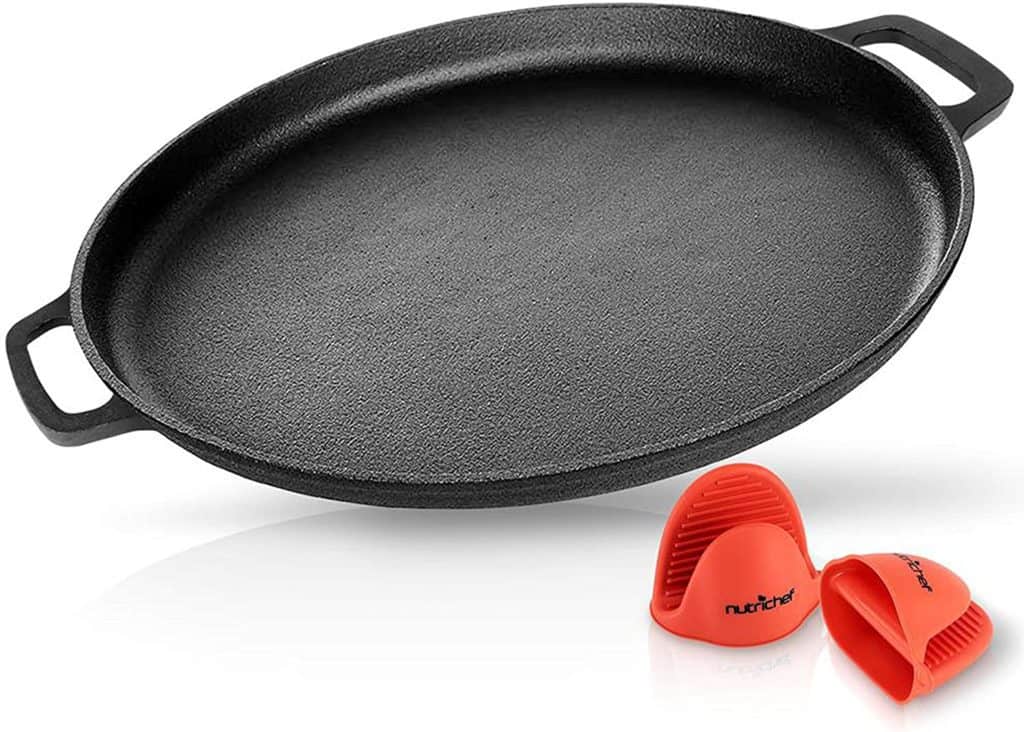
If crispy and crunchy crusts are what you look forward to, a cast iron pizza stone might be a truly valuable addition. Thanks to nifty little tools, baking a restaurant-style pizza is now a breeze!
The best part: you can also double up your cast iron pan like a pizza stone.
Cast iron is a word that refers to a group of metal alloys that include iron as their major alloying ingredient. Some people mistakenly believe that cast iron is made entirely of iron because of its name. This simply isn’t the case. Carbon steels, in fact, have a larger percentage of iron than cast iron.
A mainly iron alloy must have more than 2% carbon in the finished alloy to be classified as cast iron. Other alloys, such as manganese and silicon, are also present in lower proportions in cast irons.
The most defining point of cat iron stones is that they heat up really well, leaving you with a crunchy exterior. They also feature handles, further making way for ease of use and convenience.
Again, cast iron is practically impossible to tamper with. Unlike your clay or ceramic pizza stones, these devices won’t ever crack, no matter how hot your oven is.
Finally, the biggest takeaway of steel pizza stones is that they are super simple to clean. You must wipe them off with a clean towel after seasoning them with a dash of oil and salt.
With these stones in place, you can bid farewell to scrub forever!
The only minor issue with these stones is that they can be heavy.
Other than this, they are outstanding to go!
Pros and Cons of Cast-Iron Pizza Stones
Pros
- Extremely durable
- Highest heat retention
- Super easy to clean
- Best cooking performance
Cons
- Expensive
- May rust over time
Here are Our Recommended Cast-Iron Pizza Stones
This true-seasoned cast iron 14" pizza pan. This makes for a perfect pizza, anytime and anywhere. It works great for indoor and outdoor cooking. Its two handles make for easy maneuvering.
Pre-seasoned Cast Iron Flat Pan - Durable and Versatile Non-Stick Pan - Great for pizza - Quality Cast Iron Material - Heavy-Duty Side Handles and Deeper Walls - Easy Grip & Curving Handles - Extended Finger Space - Smooth Griddle Surface - Enhances Heat Retention and Dispersion
Made of cast iron, this 14-inch pizza pan can stand the test of time with proper care. It is almost indestructible and can even tolerate sudden changes in temperature. It is able to handle even the highest cooking temperature in the oven without chipping or cracking.

Cordierite Pizza Stones

Are you wondering what are pizza stones made of? Cordierite stones can help you bake the crispiest pizzas because they are known for their thermal shock resistance.
They can handle extreme temperatures, and unlike ceramic stones, they won’t break down during temperature transitions.
The stone, however, requires some degree of maintenance and proper cleaning for maximized durability.
Cordierite is a naturally occurring mineral compound containing magnesium, iron, aluminum, and silicon.
In addition to absorbing heat, cordierite stones also efficiently retain moisture, preventing sogginess in the curst. The downsides?
The maintenance options, that’s it. These stones heat up really well, and thanks to their even radiation, you’re left with some of the most delicious pizzas.
Pros and Cons of Cordierite Pizza Stones
Pros
- Can withstand thermal shock and high heat
- Efficiently retains heat.
- Moisture retention capacity prevents sogginess in pizza crust.
- Highly durable.
Cons
- Can be slightly exhaustive to maintain.
- Less resistant to temperature shock.
- Not resistant to moisture, shouldn’t get wet.
Here are Our Recommended Cordierite Pizza Stones
Pizza stones can make your ordinary homemade pizza taste like they are from your favorite pizzeria. This can deliver the crispiest crusts with amazing, melting ‘gooey” toppings. Cast Elegance stones are made from a specially designed, premium blend of cordierite that magnifies the heat of a home oven and gives you the performance of a professional brick baking oven right in your own kitchen.
This ceramic pizza stone bakes a crisper, more flavorful, and delicious crust. That's because the stone is heat-resistant to 800° and distributes heat evenly without hot spots, which mimics the conditions of a traditional brick pizza oven.
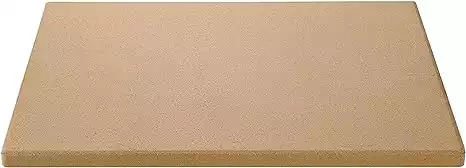 Unicook Heavy Duty Pizza Grilling Stone
Unicook Heavy Duty Pizza Grilling Stone
Unleash the hidden chef in you with the Unicook Heavy Duty Pizza Grilling Stone. This exceptional tool, crafted from durable cordierite material, promises to transform your homemade pizzas into culinary masterpieces. Its thermal shock resistance ensures that it can withstand extreme temperatures, from the high heat of your oven or grill to the cool countertop post-baking.
Heat resistant up to 1,450°F (787°C).
The Unicook Pizza Stone evenly distributes heat for a consistently crisp and beautifully browned crust every time, while its porous surface absorbs excess moisture, bidding goodbye to the dreaded soggy crust. Its considerable size makes it perfect for baking family-sized pizzas, bread, biscuits, and more. Step into a world of unmatched flavor and crispness with the Unicook Heavy Duty Pizza Grilling Stone—your gateway to a home pizzeria experience.
Steel Pizza Stones
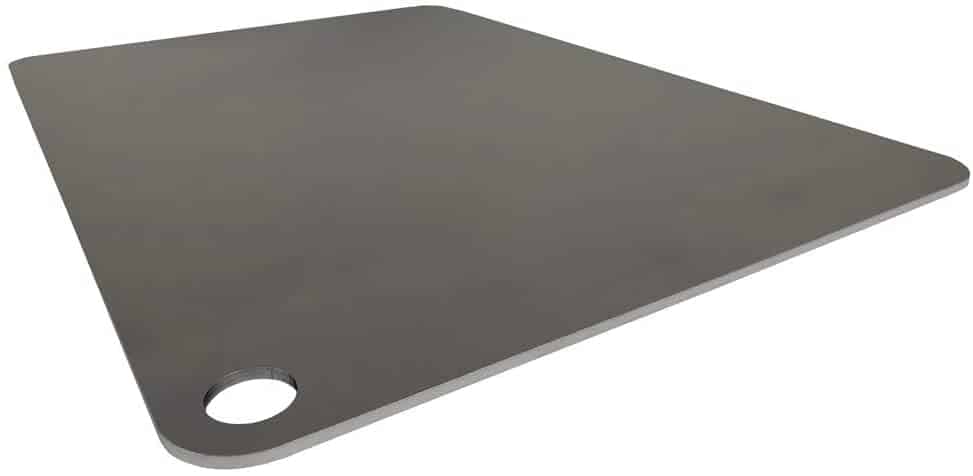
Steel conducts heat evenly and quickly, making it excellent when it comes to baking pizza. It is also almost indestructible, making it an excellent investment for a piece of kitchen equipment.
Steel is an alloy made up of iron with typically a few tenths of a percent of carbon to improve its strength and fracture resistance compared to other forms of iron.
The steel heats very efficiently. The heat from the steel will move quickly to the pizza crust that is resting on its surface.
This heating method will shorten your cook time versus using a baking stone. You can also use the steel as a griddle on your stovetop or even try freezing it to try new cooking techniques.
Baking steels come in a few different thicknesses.
Thicker steel will hold more energy, meaning it will cook faster, regulate oven temperatures better, and be better when used for cold purposes.
Just like stone, thicker steel will typically be more expensive.
Pros and Cons of Steel Pizza Stones
Pros
- It heats up faster than a cordierite stone.
- Very easy to clean
- Efficiently retains heat.
- Easy storage, you may leave it in the oven.
- Highly durable.
Cons
- Loses temperature quicker than a pizza stone.
- It comes with a price tag
Here are Our Recommended Pizza Steels
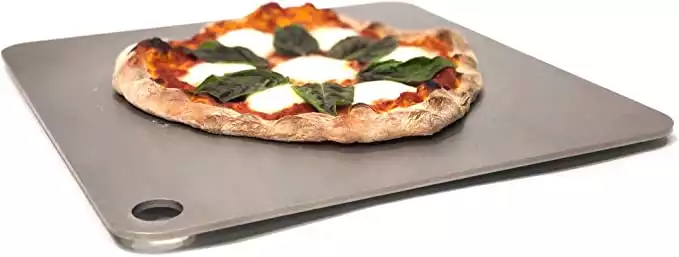 Thermichef by Conductive Cooking
Thermichef by Conductive Cooking
Restaurant quality pizza is now achievable without an expensive brick-oven stove or stone. Introducing the ultra-conductive Square Pizza Steel from Conductive Cooking! We made the ultimate cooking plate for home chefs to help them create the perfect brick-oven like pizza.
The Original Baking Steel is your secret weapon for recreating pizzeria-quality pizzas right in your home kitchen. Crafted from ultra-conductive steel, this game-changing tool captures and radiates heat with remarkable efficiency, ensuring a perfectly crisp, evenly baked crust every time.
It's not just for pizzas; use it for baking breads, roasting veggies, or even searing meats to culinary perfection. Durable, versatile, and easy to use, the Baking Steel is a true champion of home cooking that will elevate your baking game to professional heights.
Say goodbye to soggy, undercooked crusts and hello to the tantalizing taste of impeccably baked goods with The Original Baking Steel!
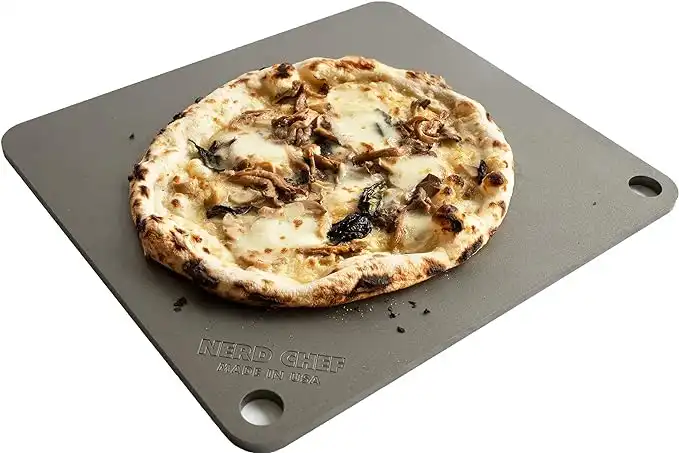 NerdChef Steel Stone
NerdChef Steel Stone
Making great crusts traditionally requires a 700-1000F wood-fired oven. Nerdchef Steel Stone replicates that performance in a home oven with its super-high heat transfer ability - transferring heat energy 20 times faster than ceramic. It creates beautiful and crispier crusts, gorgeous blistering throughout, and it cooks faster.
Granite Pizza Stones
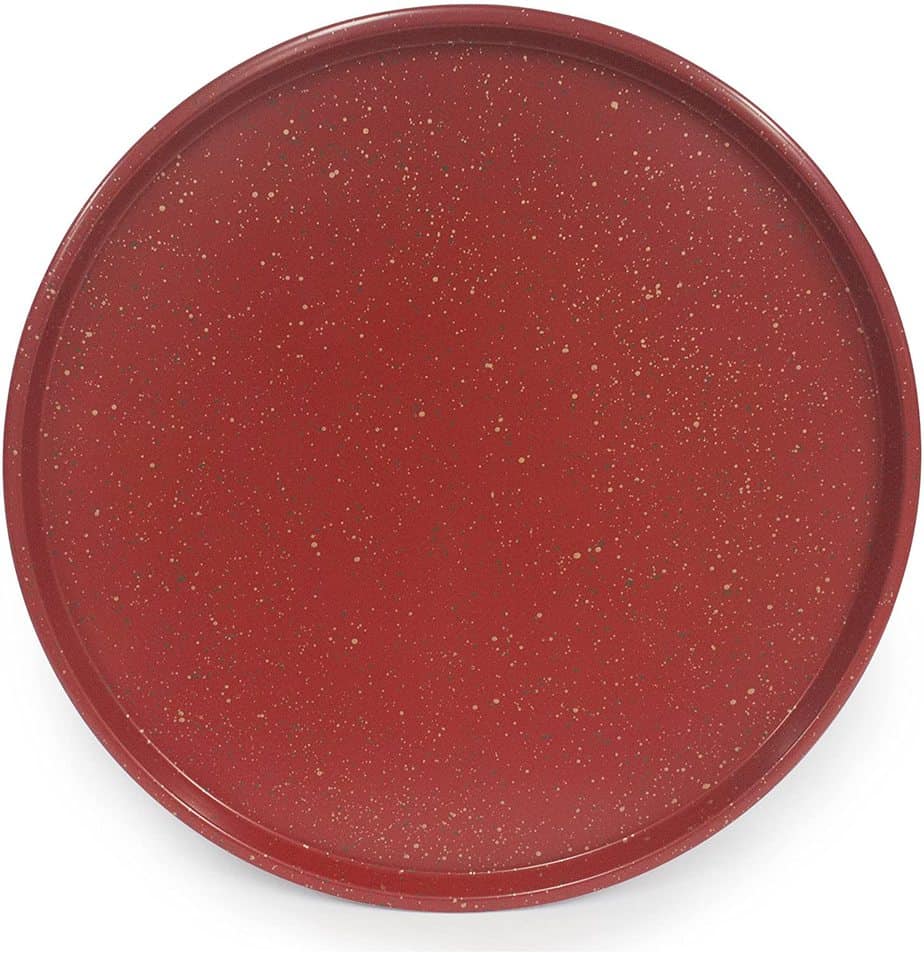
Granite stones are known for their heat retention and heat absorption properties.
Granite is a coarse-grained intrusive igneous rock composed mostly of quartz, alkali feldspar, and plagioclase. It forms from magma with a high silica and alkali metal oxide content that slowly cools and solidifies underground.
Available in various designs, they can also double up as a serving platter.
These stones are also scratch-resistant, durable, and super easy to clean. The downside? They do not absorb moisture, so you might not get the crunchiest crusts.
Pros and Cons of Granite Pizza Stones
Pros
- Durable and easy to maintain
- Absorbs and retains heat quite well
- Can double up as a serving platter
Cons
- Doesn’t retain moisture
- Takes an extremely long time to heat up
Here are Our Recommended Granite Pizza Stones
The 12-Inch Pizza Pan is the perfect size for both toaster ovens and conventional ovens. What can we say but Bon Appetit! Enjoy delicious pizza, fresh or frozen, baked in oven or toaster oven! Finally! The pan has two layers of ceramic coating that make it both durable and easy to clean.
This pizza stone is a must-have for anyone who is fanatic about eating and cooking pizza. Our pizza stone has many exciting features such as the famous Black Rock Grill heat-absorbing granite.
The Emile Henry glazed pizza stone is made of all-natural materials and is manufactured using Emile Henry's proprietary Flame Technology. The pizza stone can withstand high oven temperatures. The glaze is micro-crazed contributing to crispy well-baked crusts, just like a pizza oven.
Marble Pizza Stones
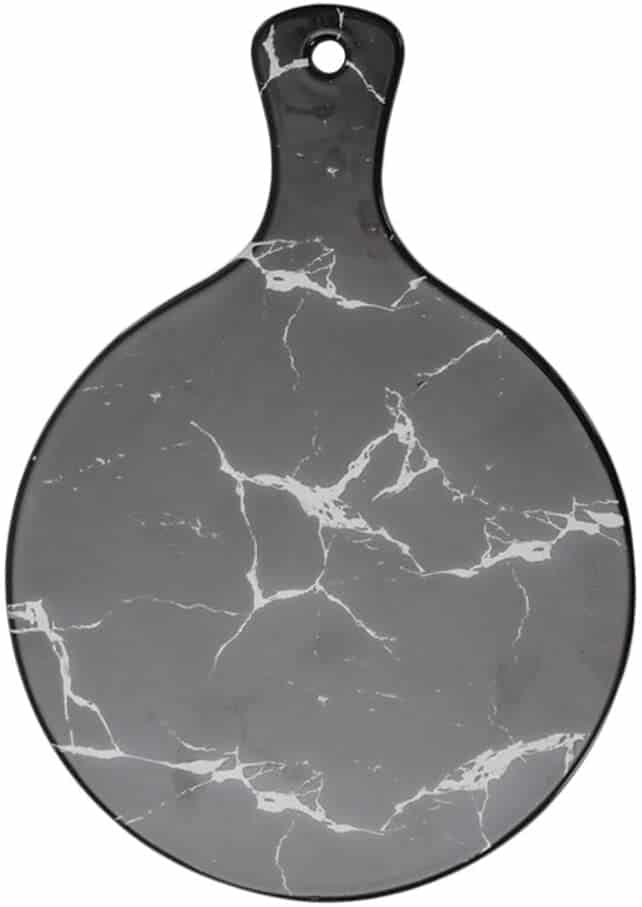
Marble pizza stones are incredibly delicate and can take ages to clean. However, this might be a good option if you are looking for a cheap stone for occasionally baking pizzas.
Marble is a metamorphic rock composed of recrystallized carbonate minerals, most commonly calcite or dolomite.
Marble stones take ages to heat up, and although they are somewhat durable, you wouldn’t want to count on them. Cleaning them is equally exhaustive.
Pros and Cons of Marble Pizza Stones
Pros
- Available in a wide range of designs
- Moderately durable
- Affordable
Cons
- It takes a long time to heat up
- Exhaustive maintenance
Here are Our Recommended Marble Pizza Stones
This marbled plate is made of reinforced marble. Beautiful and elegant, it is the best companion for food. Comfortable handle: This tray has a handle with a hole, the handle has a mechanical arc design, is comfortable to hold, and can easily move food.
This marble is harvested from real quarries and not made from artificial filler or composite materials. This leads to better thermal properties that help to retain cold (or hot) when using.
The very first step in baking is to knead the dough properly; and when you are engrossed in it, chances are there you may end up making your kitchen counter a total mess! Would you like to spend hours cleaning up the area, or enjoy gorging into your freshly baked food? We bring to you our marble pastry board – your best baking partner!
Unglazed Quarry Tiles
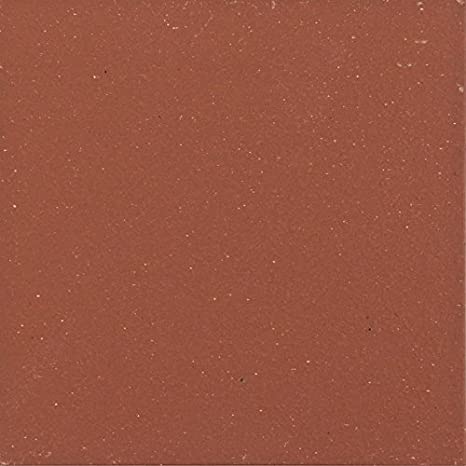
Unglazed quarry tiles might be your best option if you are looking for a cheap, DIY option for baking pizzas. Ideally, you will need four eight-inch tiles to make a large pizza tray.
Quarry tile is a tough, impermeable pavement tile created from pulverized minerals that are molded and burned in the same manner as bricks are.
Because of the minerals utilized and the high firing temperatures, they are often tougher than conventional clay bricks.
Quarry tiles, unlike clay terracotta, are not porous and will not absorb water; quarry tiles do not have a top glaze layer, unlike ceramic tile and porcelain.
The pizzas baked on these tiles are super crunchy and ideal for making thin-crust pizzas. The downsides? Most of these titles aren’t very durable and take ages to heat up.
While the regular cracks on the tiles may render an authentic taste to your pizzas, cleaning them is nothing short of a nightmare.
Pros and Cons of Unglazed Quarry Tiles
Pros
- Available in a wide range of designs
- Moderately durable
- Affordable
Cons
- Takes a long time to heat up
- Exhaustive maintenance
Here are Our Recommended Unglazed Quarry Tiles
Crafted from high-quality ceramic, matte red quarry look. Indoor or outdoor and commercial and residential use, the tile is perfect for the kitchen.
Made from ceramic with a textured stone visual. An eco-friendly product that uses recycled materials Medium shade variation gives the tile a slightly varied appearance.
This unglazed natural quarry tile gets its rich color from the natural makeup of the clay and through the firing process.
What Is The Best Pizza Stone Material?
When it comes to the best pizza stone material, Steel is a clear winner. It heats up faster than any other material, it easy to clean, and requires less maintenance than any other material. It sure will lose temperature quickly as well, but if you are doing one to two pizzas is perfect.
Additional pizza may require additional baking time. However, a minute or two will do, which we don’t think makes much of a difference in the scheme of things.
This durable metal stone will ensure even heating, leaving you with the tastiest pizzas.
Cordierite is a close second with its substantial heat retention capability. Although they are slightly cumbersome to maintain, they continue to stand out with their excellent thermal shock absorption properties and high durability.
Are you having a pizza party?
If you need to make a substantial amount of pizzas, then Cordiarite is the way to go. This stone will not lose much efficiency when you keep opening and closing the oven.
Here is What the PROs at Homemade Pizza Pro Use and Recommend
The Original Baking Steel is your secret weapon for recreating pizzeria-quality pizzas right in your home kitchen. Crafted from ultra-conductive steel, this game-changing tool captures and radiates heat with remarkable efficiency, ensuring a perfectly crisp, evenly baked crust every time.
It's not just for pizzas; use it for baking breads, roasting veggies, or even searing meats to culinary perfection. Durable, versatile, and easy to use, the Baking Steel is a true champion of home cooking that will elevate your baking game to professional heights.
Say goodbye to soggy, undercooked crusts and hello to the tantalizing taste of impeccably baked goods with The Original Baking Steel!
Pizza Stones Additional Resources
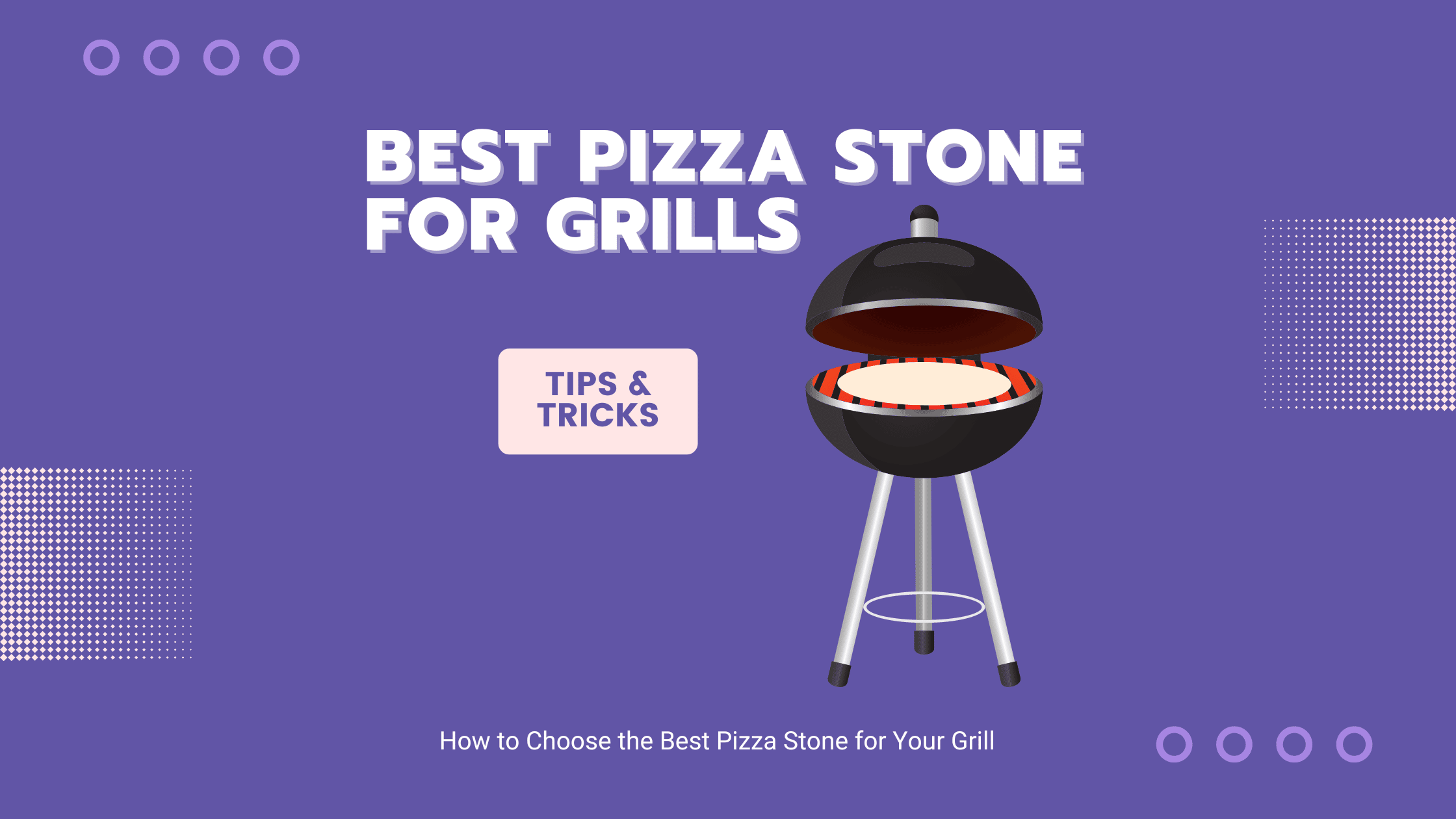
Best Pizza Stones for Grills in 2023
the PROs
Best Pizza Stones for Grills Do you know which is the best pizza stone for a grill? Pizza stones for …

Cooking Frozen Pizza on a Pizza Stone: How to Achieve a Crispy Crust Every Time
the PROs
If you’re looking to elevate your frozen pizza game and achieve that perfect crispy crust, then cooking frozen pizza on …
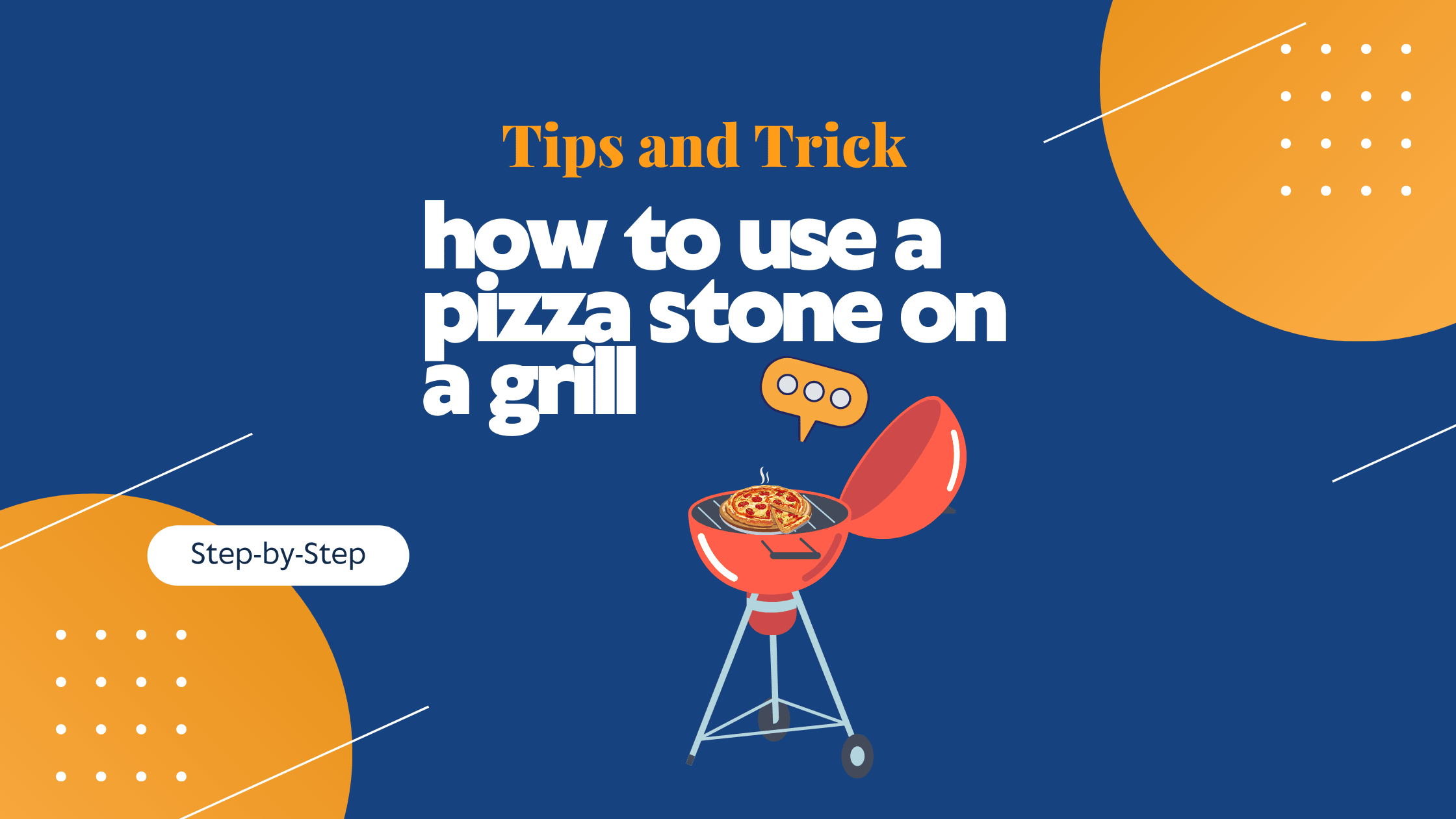
How to Use a Pizza Stone on a Grill (#1 Beginner’s Guide)
the PROs
How to Use a Pizza Stone on a Grill Quick question: do you know how to use a pizza stone …
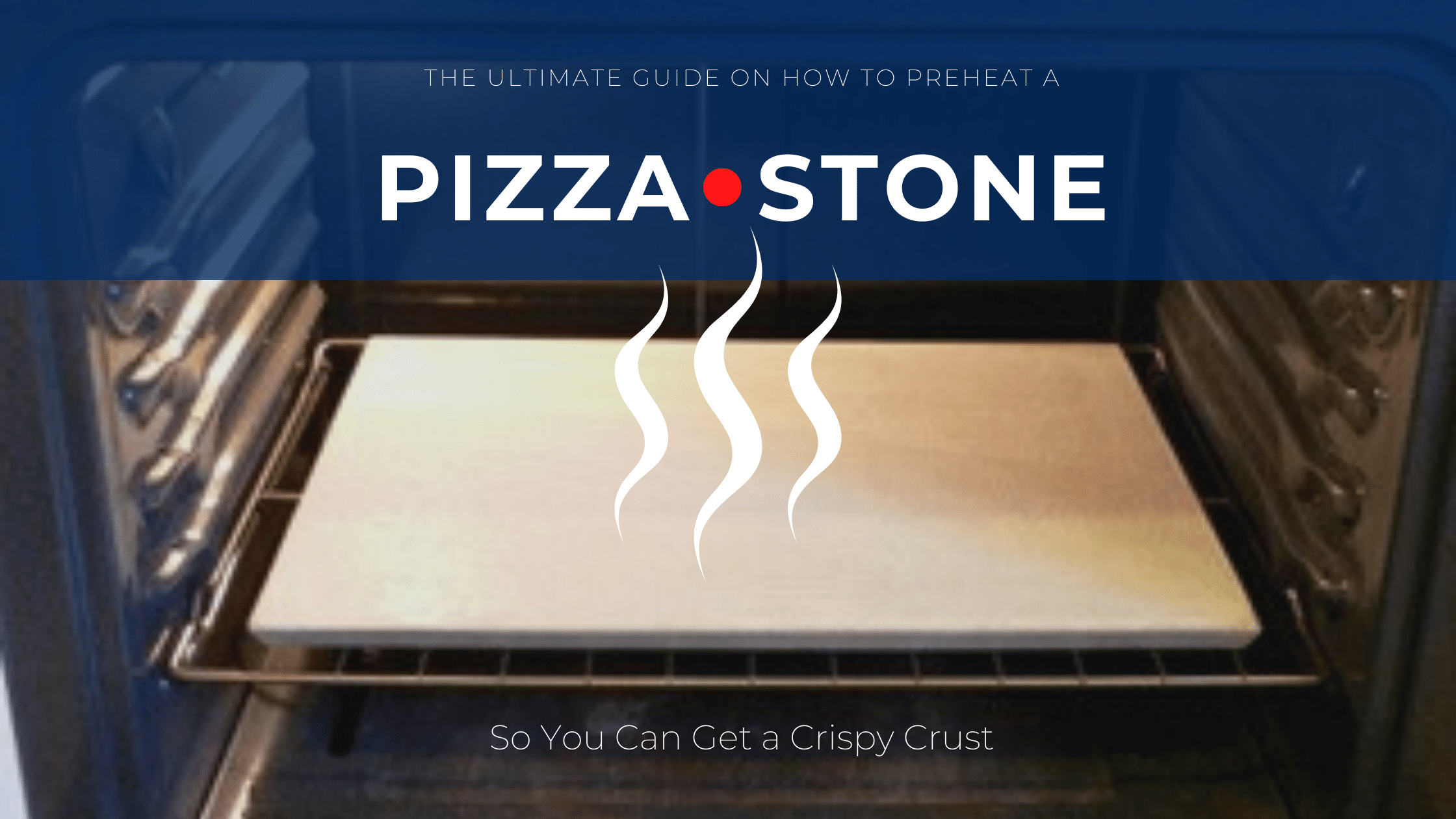
How to Preheat a Pizza Stone: The Ultimate Guide
the PROs
It’s a universally acknowledged truth that nothing quite matches the tantalizing aroma and delectable taste of a homemade pizza, crisped …
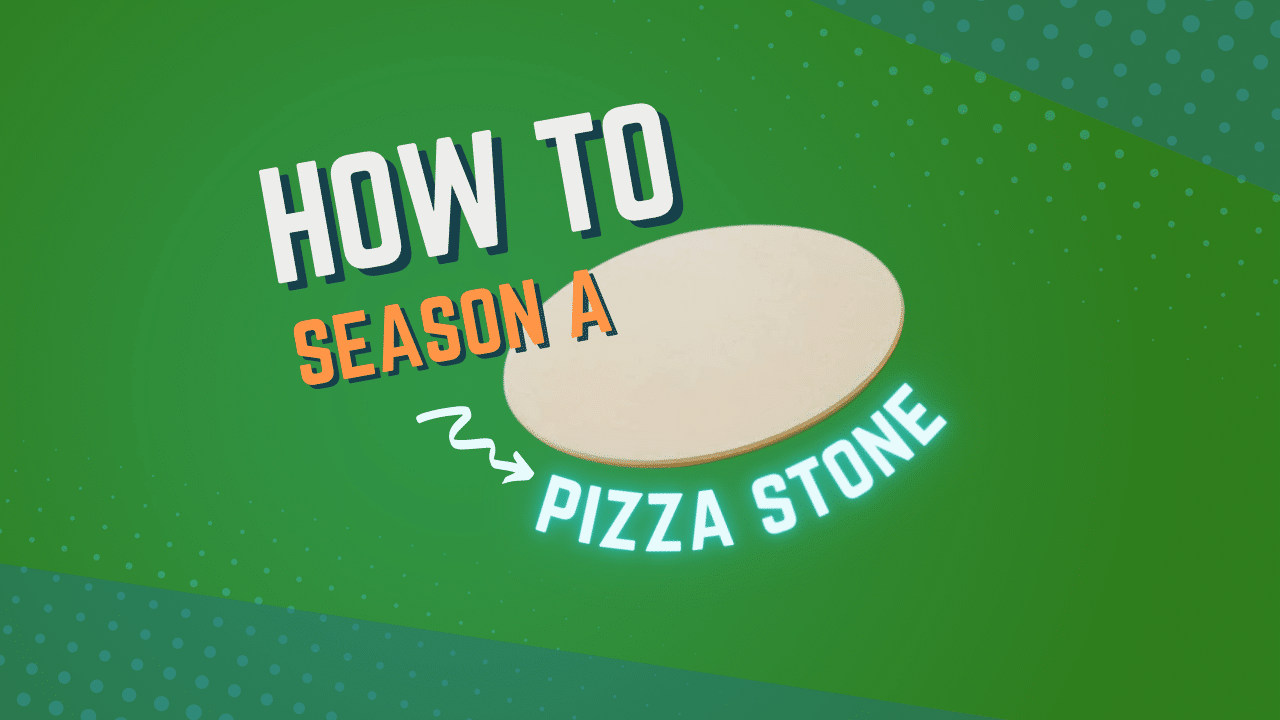
How to Season a Pizza Stone the Right Way!
the PROs
How to Season a Pizza Stone Are you wondering how to season a pizza stone? Today, we’ll look at how …
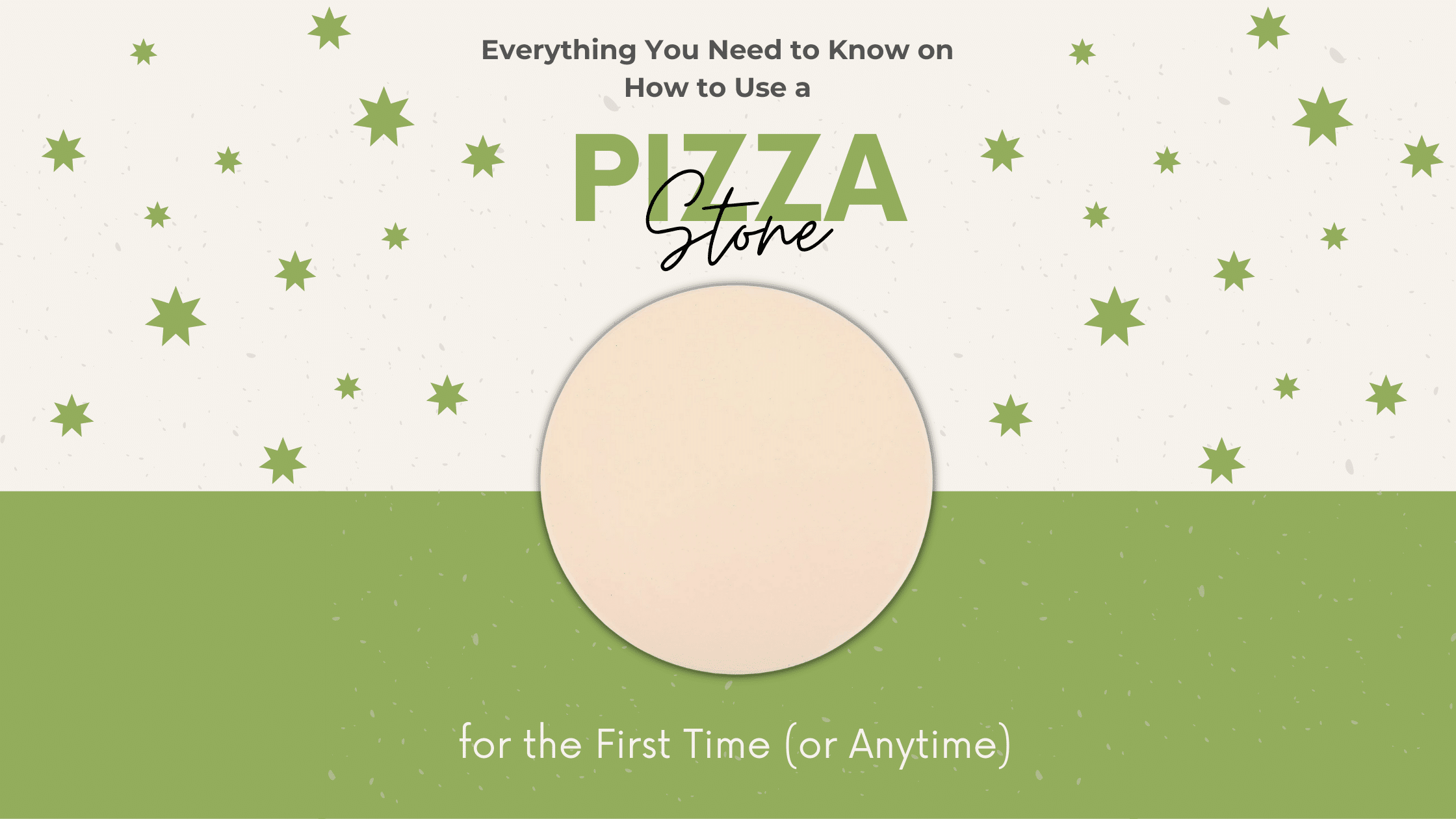
Everything You Need to Know on How to Use a Pizza Stone for the First Time
the PROs
How to Use a Pizza Stone for the First Time If you are a pizza lover, you may wonder how …
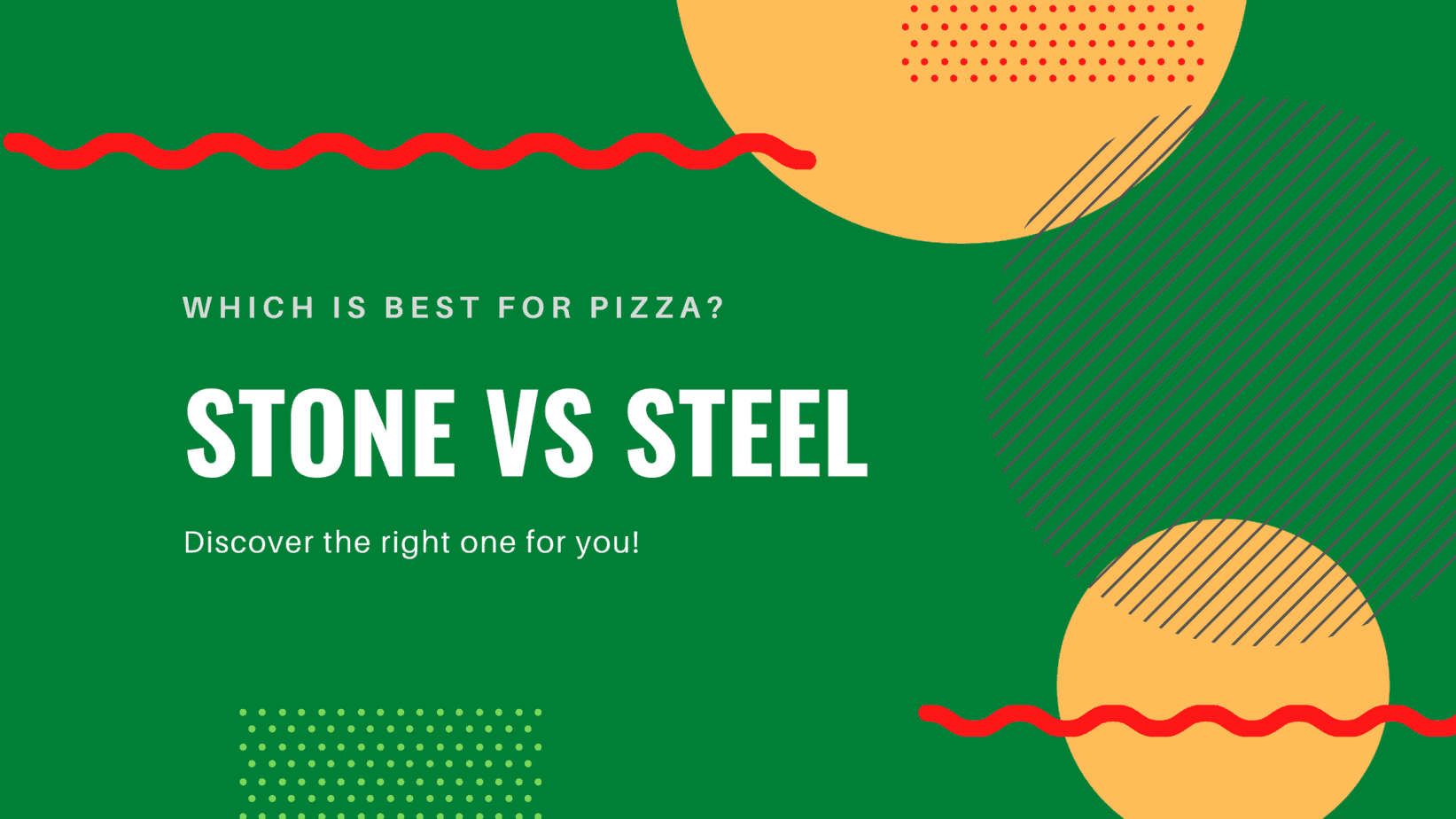
Pizza Stone vs Steel: Discover Which One You Need to Make the Perfect Pizza!
the PROs
Discover the difference between a pizza stone and pizza steel, why you need one, and find which is best for you for the perfect pizza!
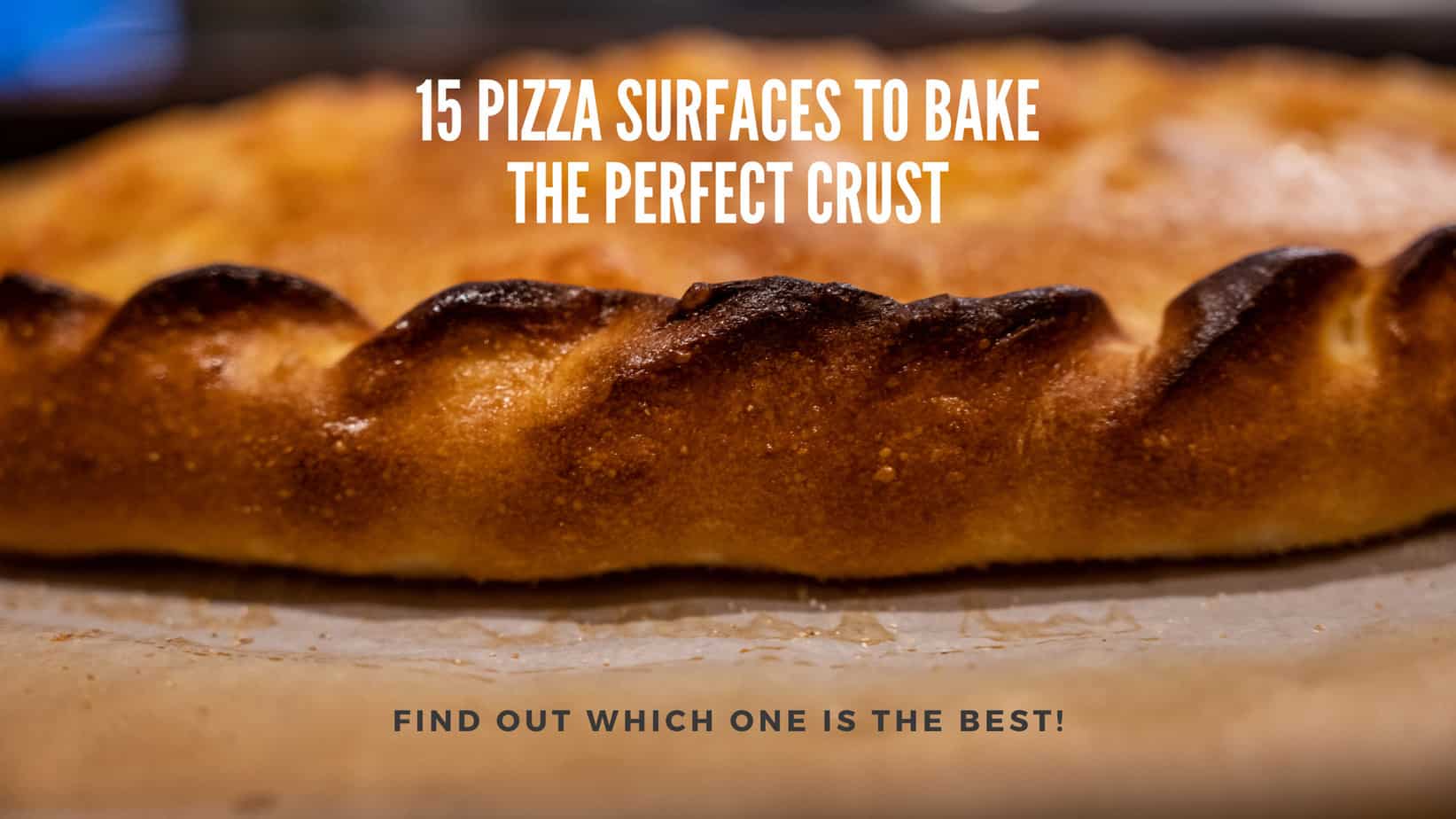
Insanely Powerful Pizza Stone Alternatives that will Give You the Best Crust
the PROs
Find 15 alternatives for a pizza baking surface. You may be surprised as some of them you may already own and some may take you for a spin.
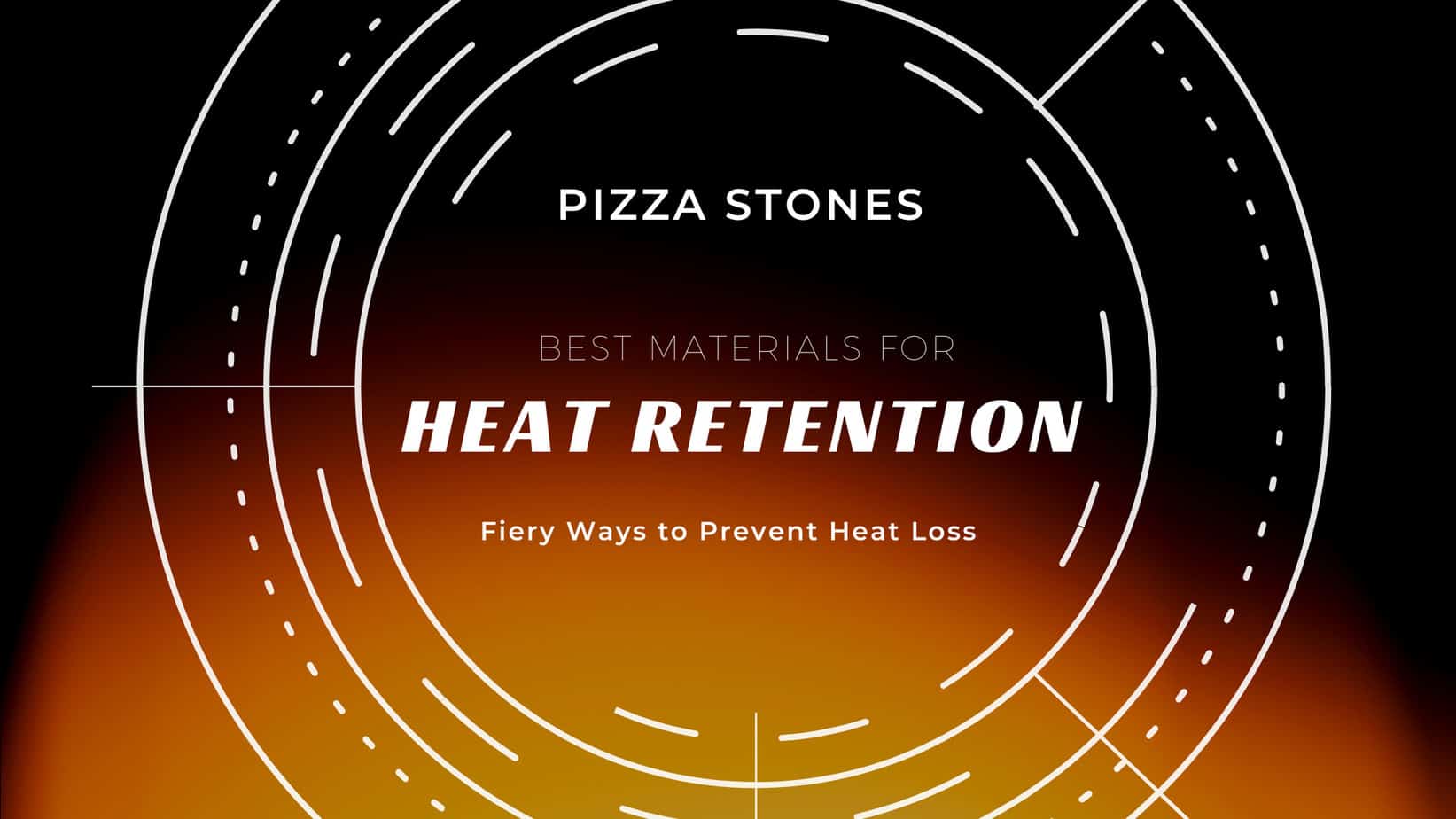
Pizza Stone Heat Retention [Best Pizza Stone Material]
the PROs
Read about pizza stones heat retention and distribution properties, their pros and cons, and which stone might work best for you!
The Last Slice
Well now that you know what are pizza stones made of. If you want to learn more about the thermal properties of pizza stones, you need to check our article, Heat Retention: Discover Which Baking Material Performs the Best.
So tell us what your experience is, we would love to know.
Have you tried any of these pizza stones?
Please let us know, and if you have any questions regarding pizza stones or any other pizza questions, send us a quick message.
If you liked this article, please share it with your friends and family or anyone who you think can benefit from it, and can be a Homemade Pizza Pro!
Enjoy!
Not a PRO? Not a Problem!
Take a pizza class to bring your pizza skills to the next level,
so you can be a PRO!
Related Posts

Costco Pizza Delivery: Find How You Can Get It Now!
the PROs
People go to Costco’s food court for many different reasons, but the cheesy slice of pizza they serve is among …
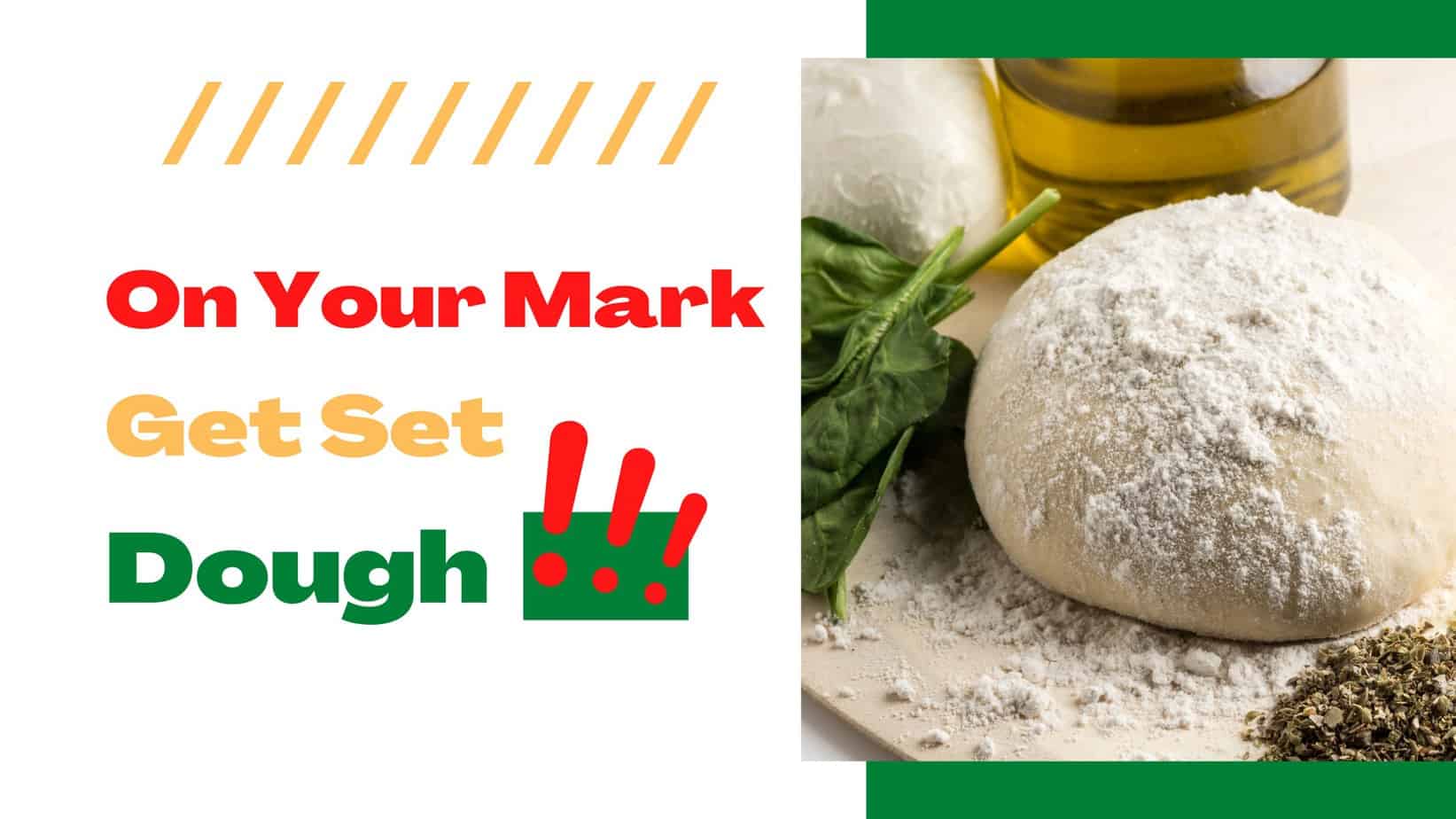
Pizza for Beginners: Don’t Buy Pizza, Make It! Here’s How to Get Started!
the PROs
You have this idea that you want to make pizza at home as opposed to ordering it, but where do you start? Don’t worry! Here you will find answers and directions to all your questions.

Pizza Toppings Under Cheese or Over Cheese? [Why the Order Matters]
the PROs
Is Pizza Cheese on Top or Bottom? Hey pizza lovers, are you wondering if you should layer pizza toppings under …
Newsletter
Subscribe to our Recipe of the Week newsletter and receive our partners’ latest recipes, tips, and discount offers.
Keep in Touch!
